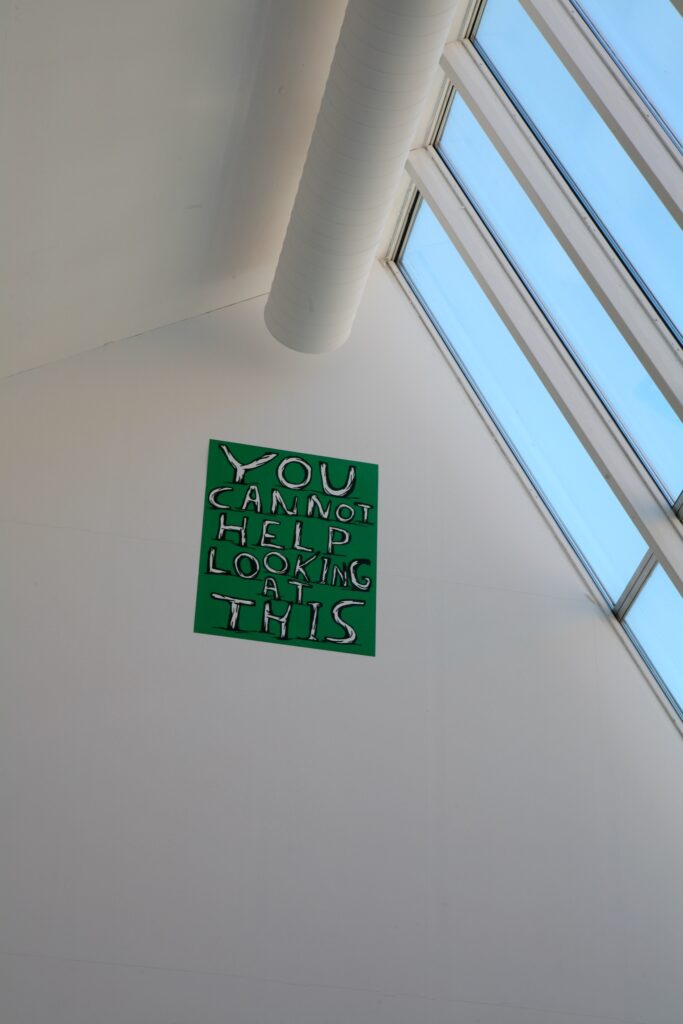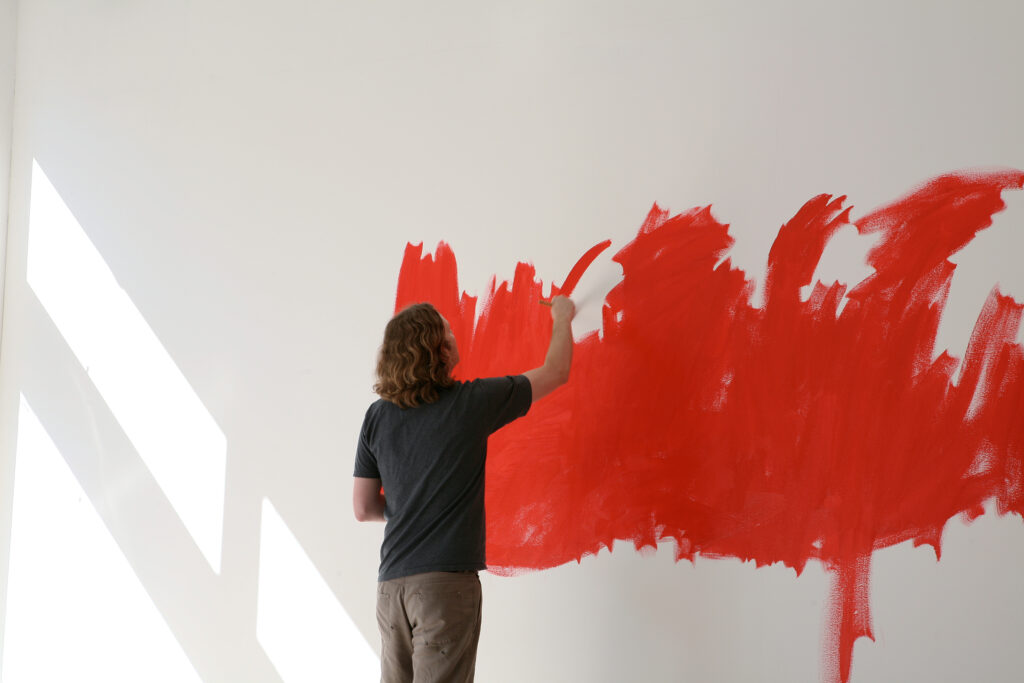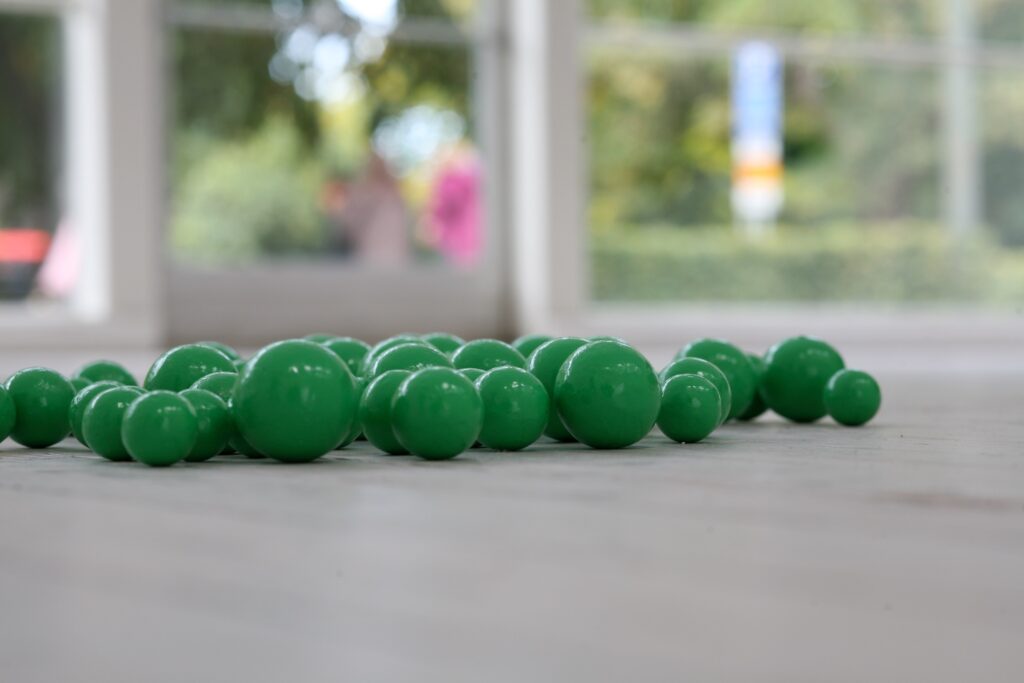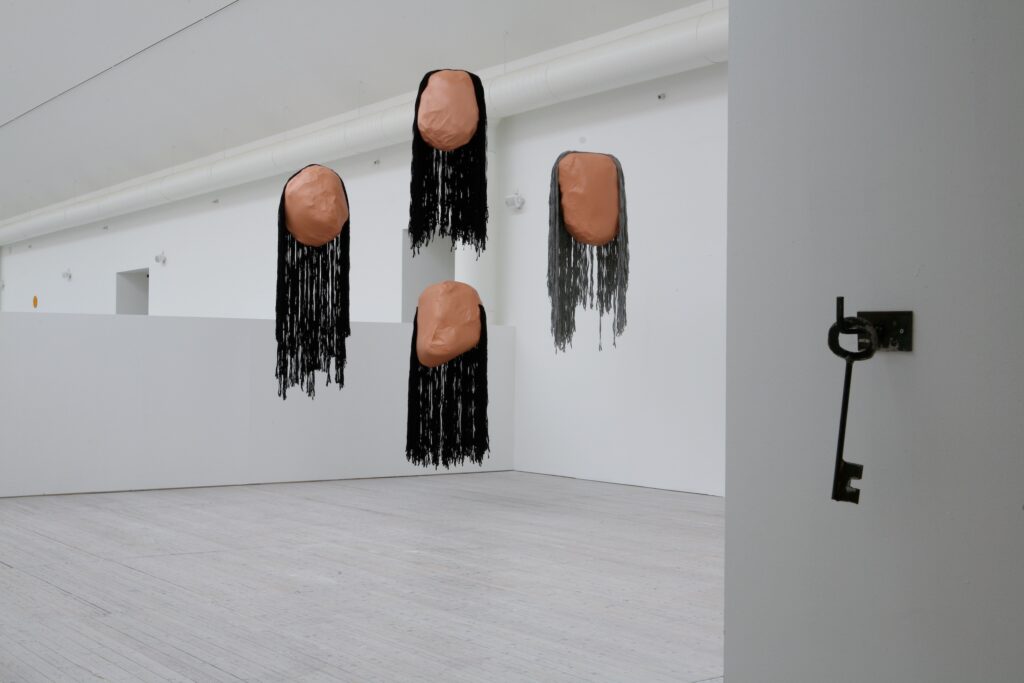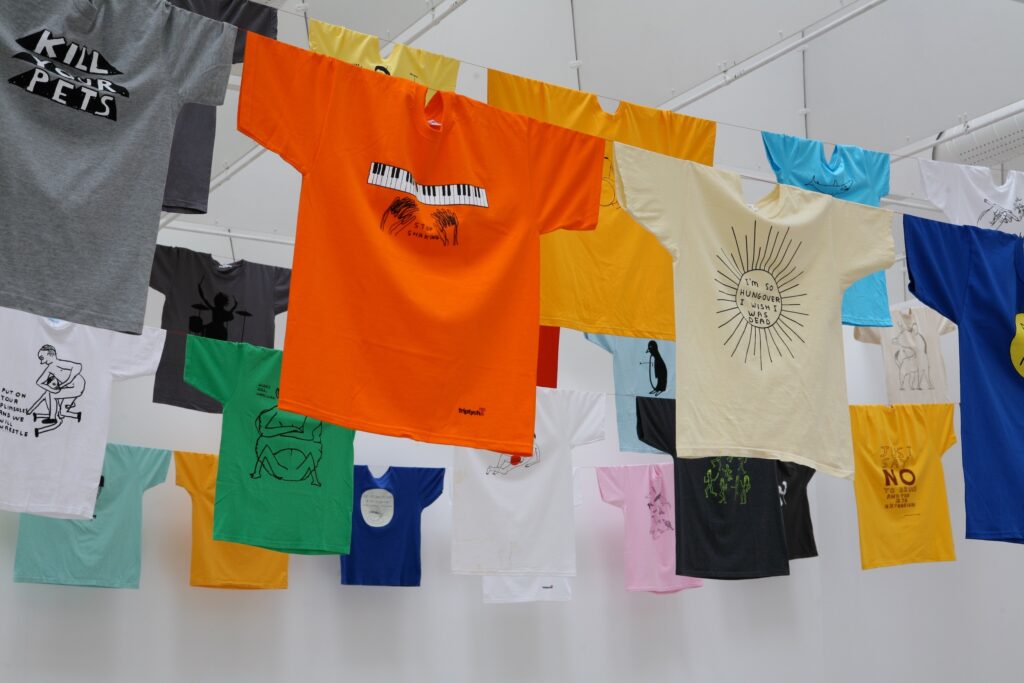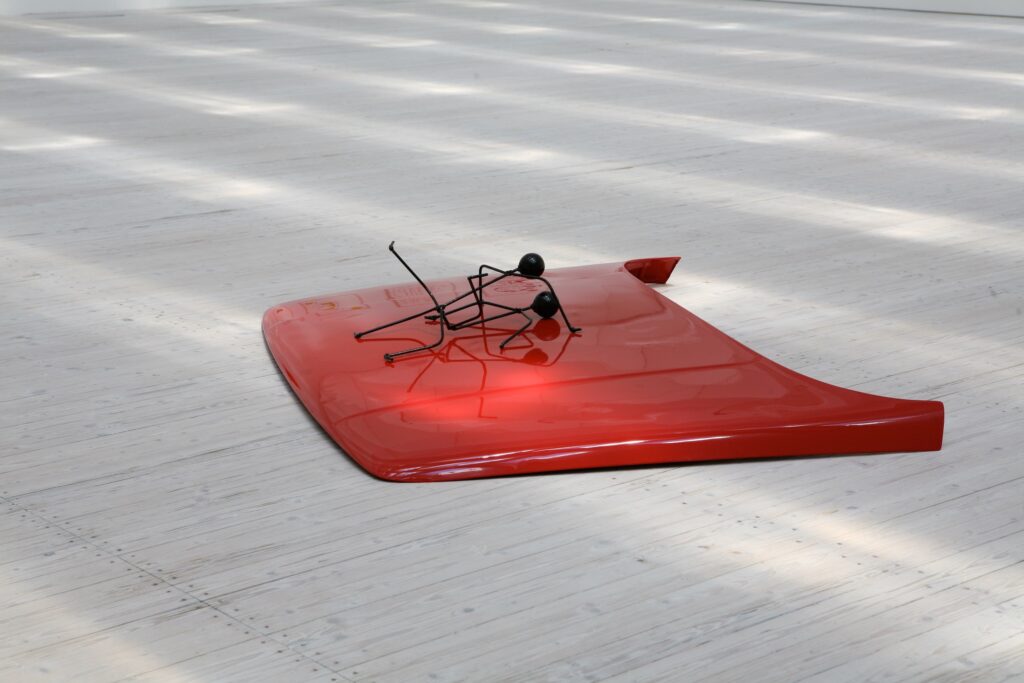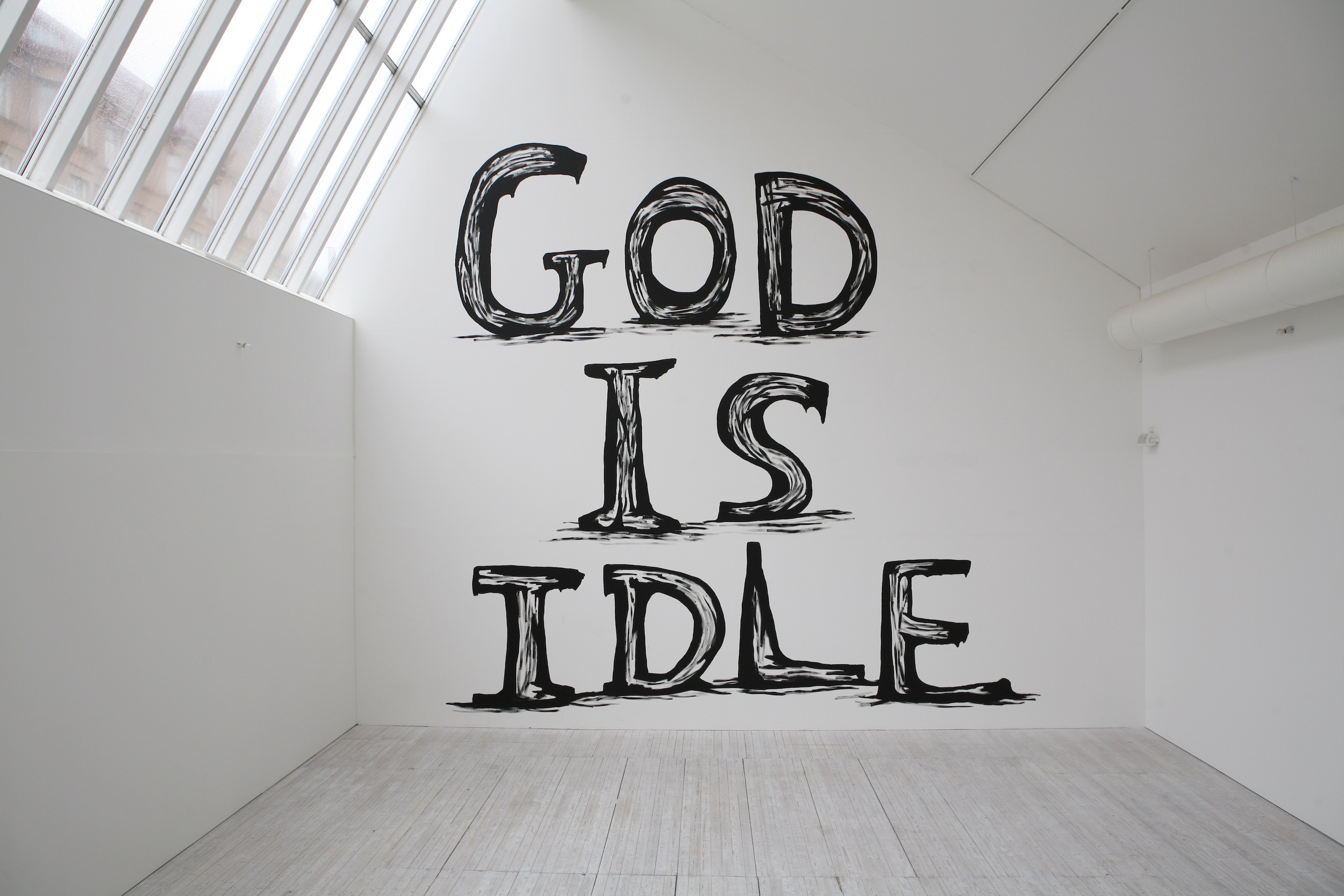
David Shrigley – Everything must have a name
8.9 2007 – 6.1 2008
The exhibition Everything Must Have a Name was the first retrospective solo show in Northern Europe by British artist David Shrigley. Internationally renowned for his simple, humorous, and often dark ink drawings, Shrigley’s work is characterized by an ostensibly naive style with text-based elements. The exhibition at Malmö Konsthall offered an extensive insight into his multifaceted artistry, presenting works across a variety of media.
Nearly 600 works were featured, including sculptures, inkjet prints, monotypes, t-shirts, sound works, films, photographs, and books. Animated films such as Who I Am and What I Want (2006), New Friends (2006), and Laundry (2006) were shown alongside sculptures like Nutless (2001), Unfinished Letter (2003), and Black Pot (2004), showcasing Shrigley’s ability to transform everyday objects into thought-provoking art.
The exhibition also included newly created works, such as 16 paintings Shrigley made for Deerhoof’s album Friend Opportunity and his own album Shrigley Forced to Speak with Others (2006). Additionally, Shrigley produced a series of site-specific sculptures exclusively for Malmö Konsthall. These were distributed across more than twenty individual spaces and corridors, each with its own title and theme.
One of the ambitions of the exhibition was to showcase the breadth of David Shrigley’s practice, juxtaposing unique works with mass-produced items created for t-shirts, coffee mugs, album covers, greeting cards, and music videos. Since his first book, Slug Trails (1991), Shrigley has published an extensive array of works combining his distinctive drawings and texts. Through his books, his weekly illustrations in The Guardian, and his animations for the BBC, Shrigley has successfully bridged the gap between popular culture and contemporary art.
Recurring themes in Shrigley’s art include absurdity, morality, and human behavior. His works present an absurd logic where rules and regulations are constantly questioned, often taking drastic and grotesque turns. Lists of questions, confessions, and imperatives challenge viewers to examine their own ethics and choices. Shrigley comments on the world with a nihilistic wit, wordplay, and inquiries that compel us to question ourselves and the environment around us.
David Shrigley studied art at the Glasgow School of Art from 1988 to 1991. He has exhibited his works extensively across Europe and North America, including solo exhibitions at Centro de Arte Caja de Burgos (Burgos), DCA (Dundee, 2006), Musée d’Art Moderne et Contemporain (Geneva), UCLA Hammer Museum (Los Angeles), and Kunsthaus Zürich. His illustrations have been published in newspapers and magazines such as Esquire (Japan), Donna (Italy), Frieze (UK), The Guardian (UK), Maisonneuve (Canada), and Du (Switzerland). David Shrigley lives and works in Glasgow.
